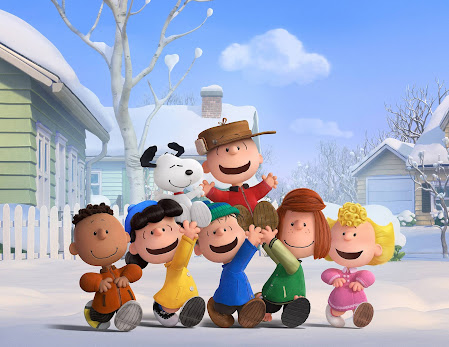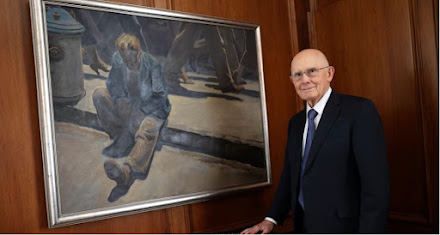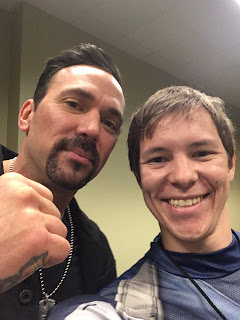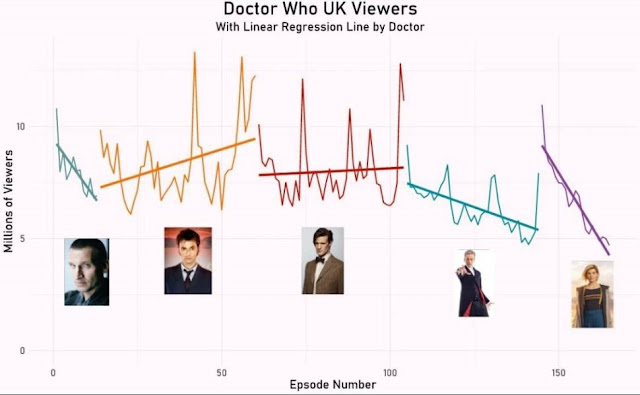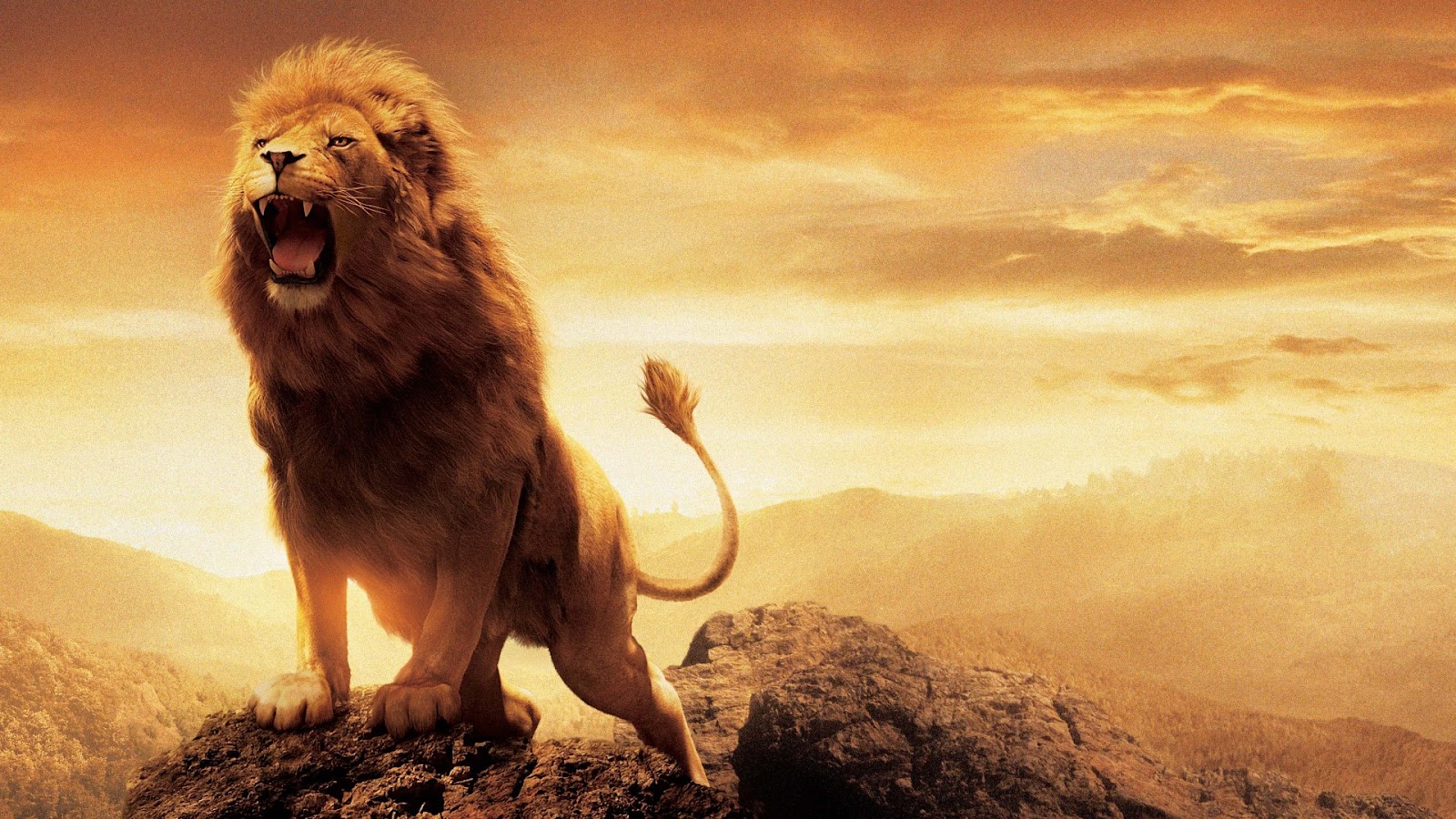It is obvious that C.S. Lewis writings is symbolic of Christianity in all his work. After his conversion to
Christianity in the early 1930’s he wrote his magnum opus The chronicles of
Narnia in the 1950’s where he intended the stories to appeal to children as
well as adults to convey a larger message of Jesus Christ.
In this post we will go over 5 truths
that C.S. Lewis wrote in The Chronicles of Narnia that we believe to be true
as members of The Church of Jesus Christ of Latter-Day Saints.
The Horse and His Boy: Judging
Others
Shasta, the main protagonist, is asking Aslan why he
injured his friend, Aravis, and Aslan replies by saying I tell no one any
story, but his own. Before Telling Shasta this Aslan also told him I am
telling you your story, not hers [Aravis]. No one is told any story but their
own. What can we learn from Shasta’s experience with the lion? That God will
tell us what he expects from us, and we should not be focus on judging others
sins. Most of us are not called to be judges (unless given authority) therefore
we should not judge others.
In Matthew chapter 7 Jesus concludes
the sermon on the mount by saying:
1. Judge not, that ye be not judged.
2. For with what judgement ye judge, ye
shall be judged: and with what measure ye mete, it shall be measured to you
again.
3. And why beholdest thou the mote that is
in thy brother’s eye, but considerest not the beam that is in thine own eye?
4. Or how wilt thou say to thy brother, Let
me pull out the mote of thine eye; and, behold, a beam is in thine own eye?
5. Thou Hypocrite, first cast out the beam
out of thine own eye; and then shalt thou see clearly to cast out the mote out
of thy brother’s eye.
We read later on when Aslan talked to Aravis that he injured her because she needed to
learn humility and empathy --- specifically for the maid that she caused to be
punished when she ran away from home.
The Lion,
the Witch and the Wardrobe: Identity
By the end of the four Pevensie siblings adventure Aslan pronounced them as Kings and Queens of Narnia. The Sons and Daughters of Adam
and Eve can become Kings and Queens from the most high God. The fundamental
principle we can learn from this is that our identity is more than a label we put on myself. We are all Children and heirs of our Heavenly Father and he is promising us to become Kings and Queens as we follow Him.
This reminds me of President
Nelson talk he gave in a broadcast to the saints of Jesus Christ:
No
identifier should displace, replace, or take priority over these three enduring
designations:
· Child of
God
· Child of
the covenant
· Disciple
of Jesus Christ
Your potential is divine. With your diligent
seeking, God will give you glimpses of who you may become.
Narnia: Stewardship and Environmentalism
In Prince
Caspian, Caspian uncle King Miraz is destroying the ways of Narnia. Animals that were captured were forced not to speak and eventually forgets how to speak. Also, in the Last Battle Shift, an ape,
attempts to deceive the inhabitants of Narnia to believe that Puzzle, a donkey,
is Aslan. With the confusion and disbelief the destruction of Narnia came to be and Narnia became no more. This message reminds me that we are environmental
stewards of this beautiful earth. We have been instructed to take care of this earth.
Doctrine
and Covenants 49:19-21:
19. For, behold, the beasts of the field and the
fowls of the air, and that which cometh of the earth, is ordained for the use
of man for food and for raiment, and that he might have abundance.
20. But it is not given that one man should possess
that which is above another, wherefore the world lieth in sin.
21. and wo be unto man that sheddeth blood or that
wasteth flesh and hath no need.
Under Environmental stewardship and Conservation it
says:
God
has made us accountable for the care and preservation of the earth and the wise
use of its resources. As stewards, we avoid complacency and excessive
consumption, using only what is necessary. We make our homes, neighborhoods,
and cities beautiful. We preserve resources and protect for future generations
the spiritual and temporal blessings of nature.
As members of
the Church of Jesus Christ we are taught to try our best to make our homes, neighborhoods,
and cities the best.
The Last Battle: Death and Resurrection and
Judgement (**Spoilers**)
While Shift was deceiving people with Puzzle
being Aslan, he gets Dwarfs to join his side and after everyone dies Lucy is
sad about the outcome of the Dwarfs and wants them to come with her to new Narnia.
“Aslan,”
said Lucy through her tears, “could you – will you – do something for these
poor Dwarfs?”
“Dearest,”
said Aslan, “I will show you both what I can, and what I cannot, do.” He came
close to the Dwarfs and gave a low growl: low, but it set all the air shaking.
But the Dwarfs said to one another, “Hear that? That’s the gang at the other
end of the stable. Trying to frighten us. They do it with a machine of some
kind. Don’t take any notice. They won’t take us in again!”
Aslan
raised his head and shook his mane. Instantly a glorious feast appeared on the
Dwarfs’ knees: pies and tongues and pigeons and trifles and ices, and each
Dwarf had a goblet of good wine in his right hand. But it wasn’t much use. They
began eating and drinking greedily enough, but it was clear that they couldn’t
taste it properly. They thought they were eating and drinking only the sort of
things you might find in a stable. One said he was trying to eat hay and
another said he had got a bit of an old turnip and a third said he’d found a
raw cabbage leaf. And they raised golden goblets of rich red wine to their lips
and said “Ugh! Fancy drinking dirty water out of a trough that a donkey’s been
at! Never thought we’d come to this.” But very soon every Dwarf began
suspecting that every other Dwarf had found something nicer than he had, and
they started grabbing and snatching, and went on to quarreling, till in a few
minutes there was a free fight and all the good food was smeared on their faces
and clothes or trodden under foot. But when at last they sat down to nurse
their black eyes and their bleeding noses, they all said:
“Well,
at any rate there’s no Humbug here. We haven’t let anyone take us in. The
Dwarfs are for the Dwarfs.”
“You
see,” said Aslan. “They will not let us help them. They have chosen cunning
instead of belief. Their prison is only in their own minds, yet they are in
that prison; and so afraid of being taken in that they cannot be taken out.”
We believe in multiple kingdoms
of glory and the highest kingdom is where God dwells. God will judge us
perfectly and will place us where we will be most happy. That is why we are asked to repent and obey his commandments that when our judgement comes we will be happy to dwell with God knowing that our sins are cleaned by Jesus Christ.
The Lion, the Witch, and the
Wardrobe: Jesus Christ Resurrection
The most
important truth of them all is that Jesus Christ lives today. As we all know
Aslan represents Jesus Christ and when Edmund was supposed to be killed because he broke the laws of the land, Aslan
volunteered as tribute. Aslan was sacrificed and became resurrected again because
When
a willing victim who had committed no treachery was killed in a traitor’s stead
. . . death itself would start working backwards
When Aslan is resurrected,
he became a life-giving being. Breathing new life into those that turned to stone.
This religion would not be possible if it was not for the breath of the savior’s
resurrection.
3 Nephi 11:10-17
10
Behold, I am Jesus
Christ, whom the prophets testified shall come into the world.
11 And behold, I am the light and the life of the world; and I
have drunk out of that bitter cup which the Father hath given me, and have
glorified the Father in taking upon me the sins of the world, in the which I
have suffered the will of the Father in all things from the beginning.
12 And it came to pass that when Jesus had spoken these words
the whole multitude fell to the earth; for they remembered that it had been
prophesied among them that Christ should show himself unto them after his
ascension into heaven.
13 And it came to pass that the Lord spake
unto them saying:
14 Arise and come forth unto me, that ye may thrust your hands
into my side, and also that ye may feel the prints of the nails in my hands and
in my feet, that ye may know that I am the God of Israel, and the God of the
whole earth, and have been slain for the sins of the world.
15 And it came to pass that the multitude went forth, and
thrust their hands into his side, and did feel the prints of the nails in his
hands and in his feet; and this they did do, going forth one by one until they
had all gone forth, and did see with their eyes and did feel with their hands,
and did know of a surety and did bear record, that it was he, of whom it was
written by the prophets, that should come.
16 And when they had all gone forth and had witnessed for
themselves, they did cry out with one accord, saying:
17 Hosanna! Blessed be the name of the Most High God! And they
did fall down at the feet of Jesus, and did worship him.
These are 5 truths
that I find important as I read Narnia. There are many more truths spread out
the series and his others works. No wonder he is quoted so much in general
conference.
What truths Have
you found while reading The Chronicles of Narnia?

















